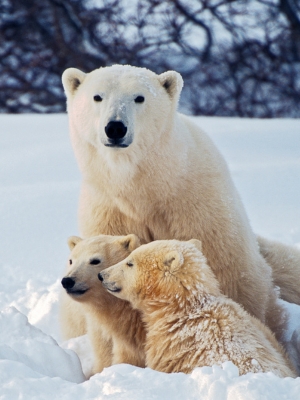Kiki the vervet has now been living at her new home at the Born Free USA Primate Sanctuary for a week, having been surrendered by her former “owners” of five years. Here, we catch up with Sanctuary Director, Liz Tyson, to see how Kiki is doing.
How do you prepare to rehome a monkey?
Before we accept any request to take on a new monkey, our senior team meets to discuss housing options, socialization options, and staffing levels to ensure that, once the monkey arrives, we really can offer them the absolute best standard of care for the rest of their lives. We will never take on a monkey if we feel that, for whatever reason, we are not the best place for them.
In Kiki’s case, she is of a similar age to two of our vervet monkey residents, and we have the in-house capability to quickly build an extension to the existing vervet housing. So, for Kiki, we knew that we could offer her a great home and the opportunity to live with other monkeys for the first time in her life. It was an obvious “yes” from our entire team.
What were your first impressions of Kiki?
We had seen just one photograph prior to picking Kiki up from her former home in Dallas, TX, which mainly showed her face, so we really did not know what kind of shape she would be in when we arrived to collect her. Honestly, I was shocked to see how thin she was. She is smaller than she should be for her age and very skinny. We knew that her weight was the first thing that we needed to work on with her as soon as we got her home. Other than that, we were really pleased at how calm and stress-free the seven-hour drive back to the sanctuary was. Kiki was curious about her surroundings, friendly towards us, and eating snacks when we offered them. These were all great signs that she was not too overwhelmed.
She had her vet check when she arrived, did you gain any insight into her health?
During her check we found that she was anemic and suffering from chronic stress as a result of her past living situation. We also confirmed that she was underweight but, thankfully, not dangerously so at this stage. That said, we have been delighted to find that little Kiki has a huge appetite and so we are hopeful that she will soon put on some healthy weight and, with her new nutritious diet, the anemia should correct itself.
Chronic stress is something we see commonly in former pet monkeys and is something that we hope to see diminish as she begins to live a more natural, less isolated, life, with other monkeys.
What about her wellbeing – how is she settling in?
She is currently in her quarantine enclosure, which is located directly opposite our existing vervet space, so she can see her future companions. She has been making friendly chatting noises towards them and is generally interested in the goings on at the sanctuary. It turns out she is an excellent bug hunter and spends her time stalking and pouncing on any little critters who fly into her space. It has been interesting to see her abandon her teddy bear, which she was initially hanging onto, and begin to engage in more natural behavior like this. She still has access to lots of toys, her teddy, and various other pieces of enrichment while she completes the next week or so of quarantine, and while we prepare her new living space.
What is next for Kiki?
She has at least another week to spend in quarantine, while we wait for her blood tests to come back, so we can be absolutely sure she poses no risk to the other monkeys, and that she doesn’t have any underlying health problems that we didn’t pick up on the first check. After that, and as soon as her new enclosure is completed, she will move next door to the existing vervet group. Initially, they will just be able to see one another and we will wait until we feel the time is right to introduce them. When that time comes, we will follow Kiki’s lead and let her spend short amounts of time with other monkeys while she adjusts. After time, we hope that she will be living permanently with friends.
Keep Wildlife in the Wild,
Liz

 Dear Reader,
Dear Reader,